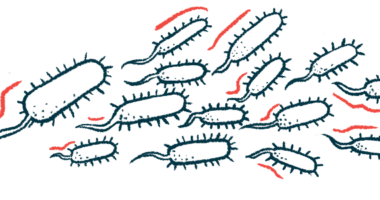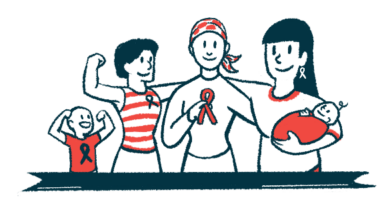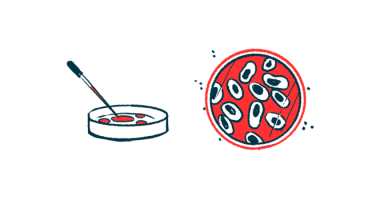Impostor syndrome is an injustice to all we’ve endured with CF
By looking inward, a columnist explains how to fight impostor syndrome

After years in a backstage role at my high school theater, I was pulled aside by the program director and told that, upon researching cystic fibrosis (CF), her staff had deemed my health too unreliable for me to continue working on shows.
The confrontation was unexpected. I’d never missed a rehearsal, no one else wanted my role, and staff had evaluated the quality of my work as strong.
I couldn’t process the intertwining outrage, humiliation, and simple sadness. My spirit slumped. I betrayed myself by muttering, “I understand.” Much had been sacrificed for my daydreams of turning theater into a career: grades, most of my free time, and even a little sanity. I was prepared to do infinitely more. Yet in the space of a couple minutes, I trashed my dream and didn’t bother appealing. The shame of CF collapsed all of my willpower.
I tossed the idea of theater into the bin, along with other dreams: I couldn’t be a chef because friends joked that no one wants me coughing all over their food. Nor a history professor because I probably wouldn’t live long enough to get a doctorate. Nor a high school teacher because someone said it’d be unfair to students if I were hospitalized too often.
In adulthood, CF stole my hearing and, with it, my budding career as a magazine journalist. Later, a company withdrew a job interview invitation because they were “unable to accommodate for hearing impairments.” Among spiked dreams are numerous stories of professors refusing to give me makeup exams after hospitalizations, turned-in makeup homework going missing, and workplaces ghosting me.
The making of impostor syndrome
To many, I wasn’t considered worth the trouble of accommodations. In time, this reaction reinforced my belief that CF and disability made me unworthy of opportunity. That’s called internalized ableism.
Today, I’m a church pastor and an editorial director at a media company. Both of these communities empower me with equity and compassion, and I often declare that they’re the dream jobs I didn’t know to dream for. But I can’t shake the impostor syndrome and fear of loss constructed by years of being treated as an inconvenience and being rejected for it.
What if my communities have forgotten I’m actually sick because my lung transplant gives the illusion of good health? What if I just got stupid lucky to be around people who provide chances I don’t deserve? What if I’m only a replaceable diversity hire? On days when I can’t perform strongly due to fatigue or brain fog, heartache reminds me of my past rejections, and I fear that another one is right around the corner if I don’t recoup ASAP.
Tinkering with my narratives
The world would feel gentler if we were more habitual in crafting positive narratives about ourselves rather than negative ones, huh?
I mentioned to a group that in the Bible, I relate most to Jacob, who deceives and thieves to get an upper hand in a society that’s unfair to weak people like him. Surely, without even realizing it, I must’ve tricked everyone so I could have today’s opportunities! Considering CF’s barriers, why else would abundance surround me today?
Loved ones’ affirmations have started to crack that narrative, though. What if it’s partly because of my disease that life is abundant?
Recently, my mom said she thinks I’m more like another Bible character: Joseph, who endured years of slavery and unfair imprisonment, which shaped his character and made him a leader. And early in our relationship, my fiancée wrote me a letter that said, “I made the mistake of thinking that things were simply handed to you, but knowing you and watching you these past months, I see how much you have fought and worked and disciplined yourself.”
Much of this world subjected me to unfair discouragement, and historically, I’ve conformed to its pattern by internalizing these discouragements and declaring them truthful. I’ve bound myself to the very pattern I loathe; to the very pattern that loathes me.
Reassessing where I’ve been and where I am
Today, I want to listen to those who see in me a person who fights hard. When I meditate on the observations by my mom and my fiancée, I realize that I have what I have because I had to fight especially hard, along with others who have been oppressed, to become a resilient, disciplined person. It’s uncomfortable to say these things without wondering if I’m arrogant. But when I recall all I’ve overcome, I realize that maybe I can cut myself a break and admit I earned much of what I have through hard work.
My advice is straightforward, but will take time to believe: If impostor syndrome taunts you, reflect on the years of trial that CF has forced upon you. Ask yourself if you’ve fought hard to be where you are today, and if that fight prepared you for today’s roles in unique ways. Enjoy the good you fought hard to have.
Note: Cystic Fibrosis News Today is strictly a news and information website about the disease. It does not provide medical advice, diagnosis, or treatment. This content is not intended to be a substitute for professional medical advice, diagnosis, or treatment. Always seek the advice of your physician or other qualified health provider with any questions you may have regarding a medical condition. Never disregard professional medical advice or delay in seeking it because of something you have read on this website. The opinions expressed in this column are not those of Cystic Fibrosis News Today, or its parent company, BioNews Services, and are intended to spark discussion about issues pertaining to cystic fibrosis.









Comments
Mary Convento
Hi Brad, Thank you for writing this article. With gratitude, I am refreshed by what you thoughtfully shared.